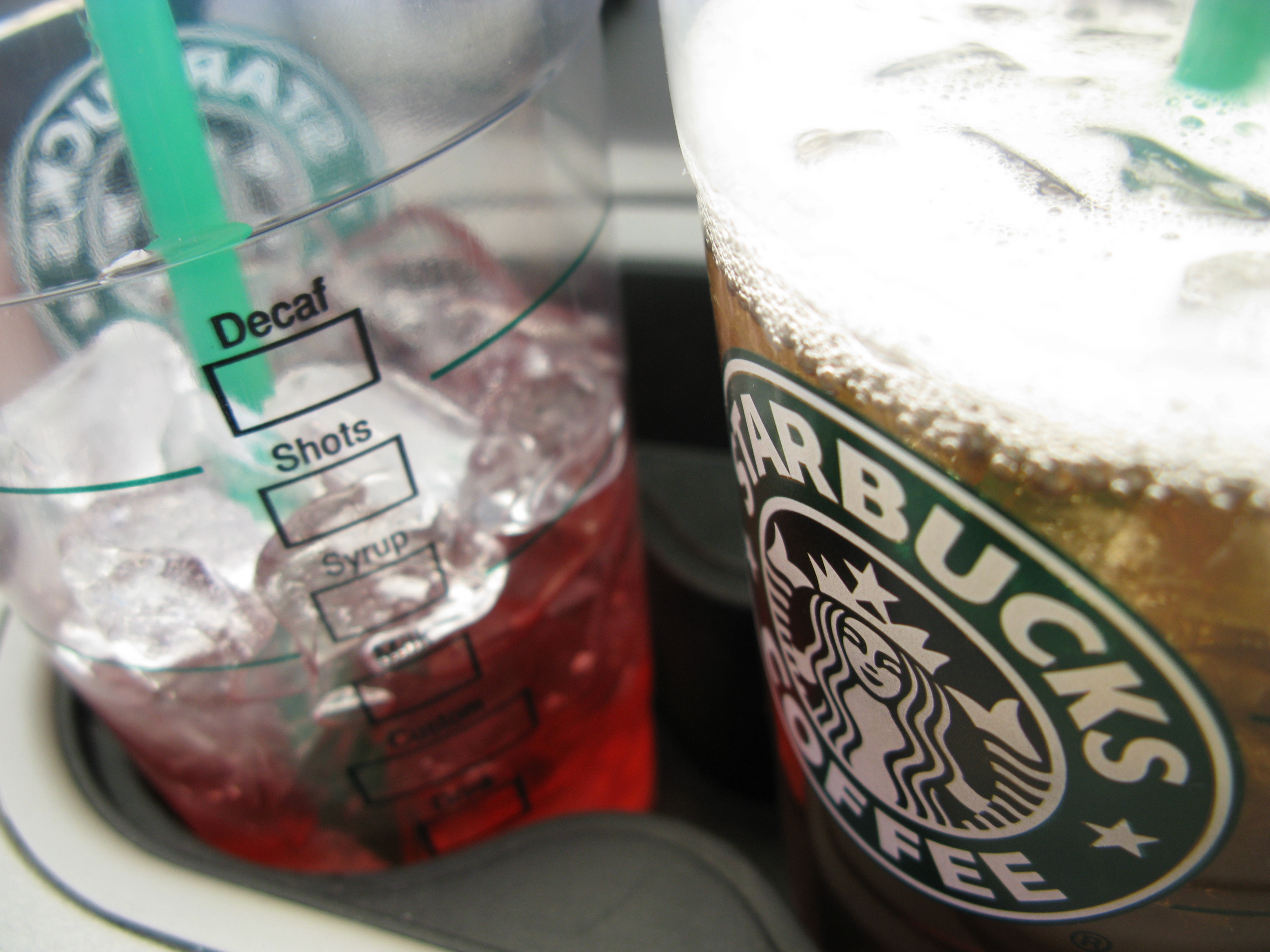Here's What You Need to Know About the BBC's Gross Starbucks Discovery
By:
A BBC investigation found what it described as "fecal bacteria" in samples of ice taken from the three largest coffee chains in the United Kingdom, including Starbucks.
 Flickr - flickr.com
Flickr - flickr.com
The BBC's consumer protection show "Watchdog" sampled ice from ten different locations of each store, and found that "seven out of 10 samples of Costa [Coffee] ice were found to be contaminated with bacteria found in feces," while "at both Starbucks and Caffe Nero, three out of 10 samples tested contained the bacteria known as fecal coliforms."
And lest you think there's an acceptable amount of fecal bacteria allowed in your coffee drink, Tony Lewis, head of policy at the Chartered Institute of Environmental Health, wants to assure you that there isn't.
"These should not be present at any level, never mind the significant numbers found," he told the BBC.
Fecal coliform is a bacteria found in the digestive tract of all warm-blooded mammals. While it's not inherently dangerous, it's measured as an indicator of other, more harmful pathogens in a given water supply. So, if there's high levels of fecal coliform found in a food or drink, that means there could be more dangerous stuff lurking behind it. Its main method of transmission is from hands that haven't been washed properly, but it can also be found in animal manure and sewage.
Rob Kingsley, a food-borne illness expert, told the Guardian that “coliforms are an indicator of fecal contamination, which means that essentially anything which is in feces could be in that ice." And "anything" can include much more harmful bacteria like E.coli, viruses, parasites, and other food-borne illnesses.
Contaminated ice is an incredibly common problem, and while the bacteria level in water is tightly regulated, it's almost impossible to control what happens to ice that's already been made in a restaurant or bar, other than requiring employees to wash their hands.
It's likely that the ice studied by the BBC was either touched by unclean hands or contaminated by machines that weren't clean, the microbiologist who carried out the test told the Guardian. It's also not just bacteria that can be found in ice, but mold, other diseases, and even viruses. And contrary to popular misconception, freezing bacteria doesn't kill them.
The BBC investigation was actually prompted by a previous investigation which found contaminated ice at a KFC in Birmingham, England. The Daily Mail had also carried out an exposé where they found contaminated ice in six out of ten fast food chains they tested, including some which had more bacteria than toilet water.
And contaminated ice isn't just a problem on the other side of the pond.
A 2007 expose by the Chicago Sun-Times found bacteria-infested ice in nearly 20 percent of the samples it took from local restaurants and bars, while a similar report in Indianapolis in 2008 found it in 13 out of 25 places surveyed by a local station.
Because of the potential for easy transmission of bacteria, industry groups have a number of tips for how employees should handle ice. The most obvious one is thorough washing of hands. Others include only using a metal scoop to grab ice, never using a cup or hands, and frequent cleaning of ice machines.
While it's troubling, and also gross, the presence of fecal coliforms in ice isn't, by itself, a reason to stop drinking iced drinks. For one thing, as Live Science points out, the test for fecal coliform is prone to false positives, and might not indicate the presence of anything truly harmful to humans. Beyond that, the BBC didn't reveal their testing methods, and might have found dead, harmless bacteria.
Even Tony Lewis cautioned the Guardian that the sample size the BBC used in the test was extremely small, and that the presence of the coliforms was, by itself, "not something to panic over."
But Rob Kinglsey, the pathogens expert, wasn't quite so sure. Asked by the Guardian if the public should avoid iced drinks, he said "I would certainly think twice about eating something which may contain fecal contamination at [a detectable] level."
